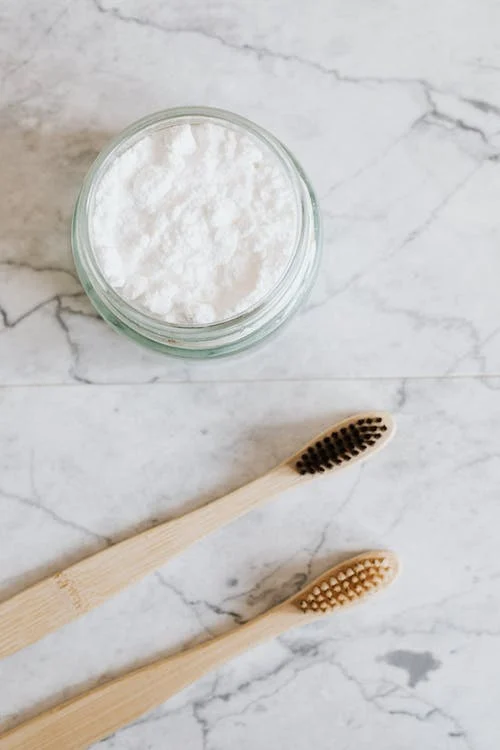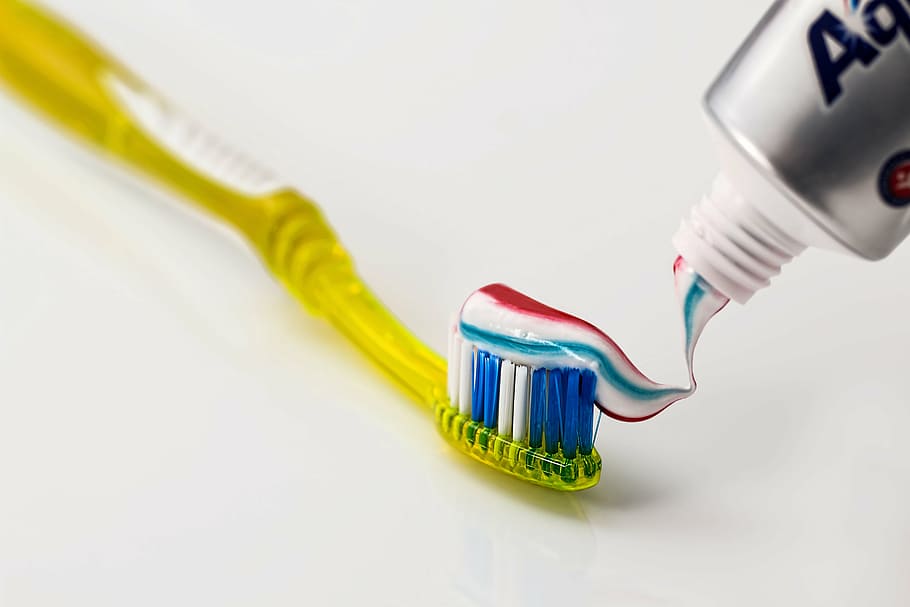Toothpaste is an essential part of oral hygiene and is used daily. In contact with a fragile area of our body and sometimes ingested in small quantities without our knowledge, choosing a product that is effective and safe for our health is essential.
So don’t hesitate to switch to natural toothpaste!
Industrial toothpaste: a chemical cocktail
Many ingredients are used in conventional industrial kinds of toothpaste: water and various synthetic chemicals, which give the product effectiveness, texture, and taste.
These are moisturizers, polishes, foaming agents, thickeners, curators, dyes (especially bleach), and fluorides to fight dental caries.
Potential adverse effects
Among the substances used, some are suspected of harming our health. Among them:
- Triclosan: an antibacterial product accused of causing hormonal disturbances and altering muscle function, including heart function. It is also suspected of being responsible for intestinal inflammation, accelerating colon cancer development, and food and skin allergies. It is also accused of contributing to the phenomenon of resistance in bacteria.
- Parabens: preservatives, some of which are also suspected of being endocrine disruptors.
- Sodium lauryl sulfate: a cleansing surfactant that irritates the mucosa and promotes the appearance of canker sores. It is often obtained from palm oil, the production of which leads to deforestation in various regions of the world.
- Titanium dioxide in the form of nanoparticles via the dye E171: a pigment classified by the International Agency for Research on Cancer as a possible carcinogen (its carcinogenic effect in animals is proven). In this nano form (it can contain up to 50% of particles smaller than 100 nanometers), it can penetrate the brain and accumulate in various organs such as the liver, heart, or lungs, where its effects are unknown to date. At the European level, titanium dioxide, additive E171, was banned in all food products in the European Union in 2022.
- Fluorides: compounds that can cause stains on the teeth (fluorosis) and are toxic in high doses.
It is thus advisable to be particularly vigilant about the nature of the toothpaste one uses!
What is natural toothpaste?

Natural toothpaste represents a solution to replace conventional toothpaste insofar as its composition excludes synthetic chemicals and, in fact, potentially harmful substances.
Organic toothpaste
Like all certified organic cosmetics, organic toothpaste contains at least 95% of products of natural origin and at least 10% of plants from organic farming. If the composition varies from one care to another, we often find :
- Silica, xylite, white clay, and sea salt as cleaning agents to fight against dental plaque;
- xylitol, extracted from birch or beech bark, and wheat bran for an anti-caries action;
- plant extracts with antibacterial properties such as echinacea, thyme, green tea, cloves, grapefruit seeds, myrrh, etc. ;
- chamomile, witch hazel, sage, etc., for gum health;
- peppermint or natural strawberry flavoring for flavor.
Organic kinds of toothpaste often foam less than their conventional counterparts: this is not a sign that they wash less. It is just that their surfactants do not have the same properties as chemical products.
Note: Most organic tubes of toothpaste do not contain fluoride. Never mind, you can consume foods that contain this element.
Toothpaste in tablet form
A new form of toothpaste has recently appeared on the market: oral hygiene tablets.
- They do not contain any hazardous chemicals.
- They are very ecological since they are packaged in recycled cardboard.
- They are not tested on animals.
- But their price remains high.
Homemade toothpaste
It is also possible to prepare your own homemade toothpaste recipes.
Be careful, however, because the dosages are not always well controlled, and some products, even natural ones, can attack the teeth and the fragile mucous membranes of the mouth. Baking soda, for example, is very abrasive, so it should not be used too frequently.
With all the information in this post, you will now be careful with your toothpaste. Remember to jot down a few words in the comments below.


